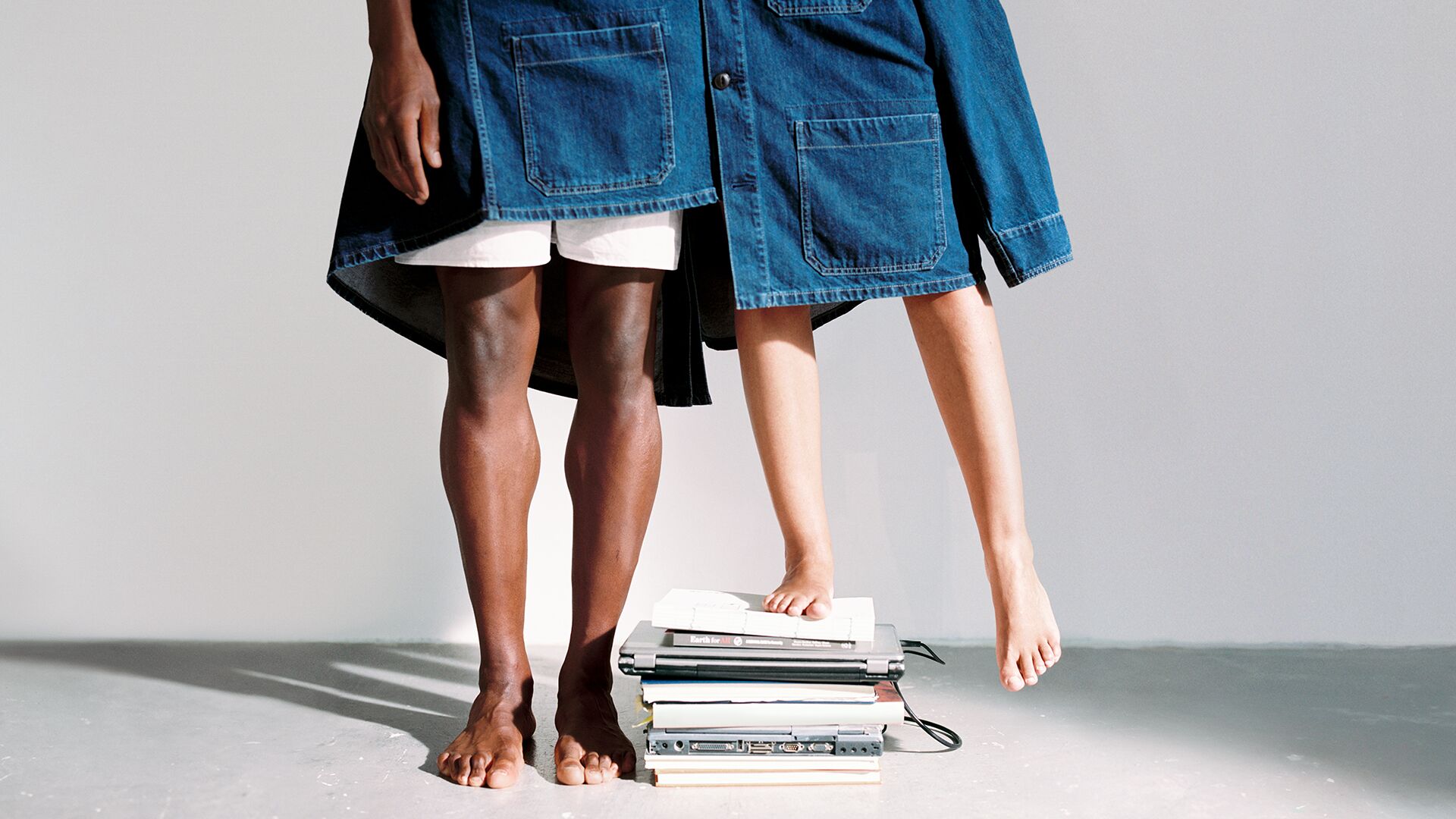The Fashion ReModel – making money without making more clothes?
The Fashion ReModel is a demonstration project that’s redefining how revenue is generated in the fashion industry, embracing rental, repair, resale, and remake practices as commercially viable alternatives to new garment production. Led by the Ellen MacArthur Foundation and supported by the H&M Foundation, the project empowers leading brands to identify solutions and unlock barriers in order to scale circular business models and begin to decouple revenue from production.

Although circular business models are nothing new, in recent years, rental, repair, resale, and remaking have boomed – representing a USD 73 billion market share as of 2019 (largely driven by resale). However, this is still only a fraction of the global fashion market with traditional brands mostly running small-scale pilots – and therefore circular business models are still far from the norm.
If scaled, this way of doing business could be an important step that contributes towards decarbonisation of the textile industry by providing considerable reductions of greenhouse gas emissions, encouraging a pivot away from low utilization trends, and creating a new type of growth.
Rethinking growth for a sustainable future
Participants of The Fashion ReModel operate across high-end, activewear, retailers, mid-range, and high-street and, with support from the Ellen MacArthur Foundation, will identify solutions and unlock barriers in order to scale circular business models and begin to decouple revenue from production. Today, the fashion industry operates under a take-make-waste model, meaning millions of tonnes of clothing are produced, worn, and discarded every year. We must reinvent this wasteful linear system and fundamentally transform the way we design, make, and ultimately enjoy our clothes.
“We must decouple revenue from the production of new garments and the use of natural resources. Embracing circular business models is essential – there’s simply no credible path to meeting global climate and biodiversity targets without transforming the way business is done.”
Christiane Dolva, Head of Innovation, Research & Demonstration at the H&M Foundation
Building a tangible approach
The project’s ambitious framework is designed to scale circular business model solutions. The first 8 participants are Arc’Teryx, H&M Group (and its brands Arket, COS & Weekday), Reformation, Primark, and Zalando with the group set to grow by mid-2025.
To take part, brands and retailers set an ambition to increase the percentage of their revenue derived from circular business models over the next three years and report their progress to the Ellen MacArthur Foundation annually.
The project is underpinned by a common set of definitions and principles and was shaped in consultation with 150+ organisations across the fashion industry – including brands, retailers, NGOs, academics and innovators. It focuses on tangibility, with collaborative, focused and catalytic workstreams to test hypotheses and create specific outputs on topics from finance and climate to policy and marketing. Additionally, a Technical Reference Group composed of diverse experts within supply chain, just transition, service design, data, and tech ensure the initiative remains informed, inclusive, and impactful.
Workstream insights, working on what is possible to make the economics work for businesses today, while collectively targeting system change intervention points to improve commercial viability in future will be published each year, regularly spotlighting existing solutions and remaining gaps to be overcome by the fashion industry with support from policymakers. Additionally, in 2028, The Ellen MacArthurFoundation will publish a report to highlight group progress on aggregate revenue generated from circular business models, tonnes of virgin material and greenhouse gas emissions avoided.
“For a circular economy for fashion to become the norm, we must accelerate efforts that not only redesign the products of the future, but also the services and business models that deliver them and keep them in use. We welcome business-led action towards a world where, instead of being worn once and discarded, clothes can be used many times – threaded through the lives of many people.”
Jules Lennon, Fashion Lead at the Ellen MacArthur Foundation
A blueprint for systemic change
The Fashion ReModel is not just about changing practices for a few brands – it aims to inspire and enable the entire industry to adopt a new way of doing business in fashion. Demonstration projects like this are not about solving everything all at once, they’re about getting started, building confidence, showing other actors in the system what is possible, and increasing the minimum bar over time. By delivering a replicable roadmap, the project is creating conditions for systemic adoption of circular business models.
Why this matters
Research by the Ellen MacArthur Foundation highlights that while renewable energy and efficiency measures can address 55% of global emissions, transforming how we design, make, and use products is key to tackling the remaining 45%. The fashion industry, a significant contributor to global emissions, has a critical role to play in achieving net-zero goals.
A circular economy for fashion reduces collective climate impacts by decoupling revenue from production of new products: this research shows that circular business models such as rental, repair, resale and remaking, could grow to 23% of the market by 2030, representing a 700bnUSD opportunity. This could lead to an overall CO2 emissions reduction for the fashion industry of up to 16% – providing up to a third of the abatement needed to be on a 1.5-degree pathway.
The H&M Foundation’s philanthropic support to The Fashion ReModel underscores its commitment to a fair and just transition for the industry, leveraging collaboration and innovation to accelerate impactful change.
Project time period
Financial Support:
SEK 16 500 000
Focus Areas:
Partners:
Countries:
Status:
For more technical information about the project, please visit Ellen MacArthur Foundation.